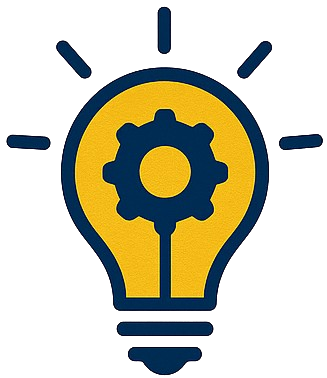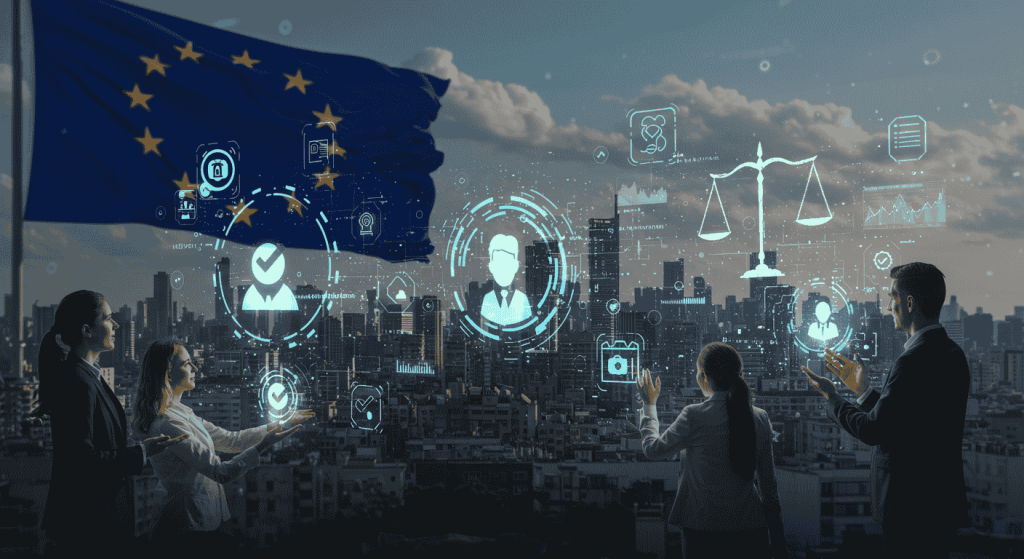Navigating the AI Landscape in 2025
Artificial Intelligence (AI) is no longer a futuristic concept; it’s a present-day reality transforming industries worldwide. In 2025, the European Union (EU) has taken significant steps to regulate AI technologies, ensuring ethical standards and fostering innovation. Concurrently, generative and agentic AI are revolutionizing sectors by automating tasks and enhancing decision-making processes.
EU AI Regulations: A Global Benchmark
The EU’s Artificial Intelligence Act, finalized in late 2023 and set to take full effect by August 2026, is the world’s first comprehensive legislation governing AI use. This regulation categorizes AI systems based on their risk levels:
-
High-Risk AI Systems: Subject to stringent oversight, including transparency requirements and compliance with the Copyright Directive.
-
General-Purpose AI Models: Must meet transparency standards and disclose training data.
Companies operating in or serving the EU, including those outside the region, must comply with these regulations. Non-compliance can result in fines up to 7% of global revenue.
Generative AI: Creating Content at Scale
Generative AI refers to systems capable of producing new content, such as text, images, and music, based on learned patterns. In 2025, generative AI is being employed in various domains:
-
Healthcare: AI agents autonomously communicate with patients between medical appointments, helping them understand discharge instructions, monitor medication adherence, and more.
-
Finance: AI agents assist in fraud detection by analyzing transaction patterns and flagging unusual activities in real-time.
-
Education: AI-powered tutors provide personalized learning experiences, adapting to individual student needs and progress.
Agentic AI: Autonomous Decision-Making Systems
Agentic AI systems go beyond generating content; they can make decisions and take actions autonomously. These systems are being integrated into various industries:
-
Customer Support: AI agents handle customer inquiries, process refunds, and escalate complex issues to human agents, improving efficiency and customer satisfaction.
-
Sales & Marketing: AI agents analyze customer behavior, craft personalized messages, and engage prospects, enhancing lead conversion rates.
-
Human Resources: AI agents streamline recruitment processes by sourcing candidates, screening resumes, and automating onboarding procedures.
Top 10 Healthy Eating Tips for Weight Loss (2025)
Healthcare: Enhancing Patient Care with AI
AI technologies are revolutionizing healthcare by improving patient outcomes and operational efficiency:
-
Patient Monitoring: AI agents track patient vitals and alert healthcare providers to potential issues, enabling timely interventions.
-
Appointment Scheduling: AI systems manage appointments, reducing wait times and optimizing clinician schedules.
-
Drug Discovery: Agentic AI analyzes vast datasets to identify potential drug candidates, accelerating the research and development process.
Finance: Automating Risk Management and Compliance
The financial sector is leveraging AI to enhance decision-making and ensure regulatory compliance:
-
Risk Audits: AI agents perform continuous audits to detect unusual patterns and respond to emerging threats.
-
Loan Underwriting: AI systems analyze creditworthiness, streamlining the loan approval process.
-
Compliance Monitoring: AI agents ensure adherence to regulations by monitoring transactions and flagging potential violations.
Cybersecurity: Proactive Threat Detection
AI is transforming cybersecurity by enabling proactive threat detection and response:
-
Anomaly Detection: AI agents monitor network traffic to identify unusual patterns indicative of potential threats.
-
Automated Response: AI systems can isolate compromised systems and initiate alerts, reducing response times.
-
Predictive Analysis: AI agents anticipate potential vulnerabilities by simulating attacks and analyzing weaknesses.
Retail & Logistics: Streamlining Operations
AI technologies are optimizing retail and logistics operations:
-
Inventory Management: AI agents predict stock levels and automate replenishments to avoid shortages or overstocking.
-
Route Optimization: AI systems plan delivery routes based on traffic, weather, and priorities for faster and cost-effective deliveries.
-
Customer Service: AI chatbots handle customer inquiries, including returns and inventory queries, improving efficiency.
Education: Personalized Learning Experiences
AI is transforming education by providing personalized learning experiences:
-
Adaptive Learning Systems: AI analyzes each student’s strengths, weaknesses, and progress to adjust lessons dynamically.
-
AI-Powered Tutors: Virtual tutors offer instant feedback, assist with assignments, and suggest tailored recommendations.
Manufacturing: Predictive Maintenance and Smart Operations
AI is enhancing manufacturing processes through predictive maintenance and smart operations:
-
Predictive Maintenance: AI uses real-time data from sensors to monitor equipment health and detect early signs of wear or failure.
-
Smart Factory Operations: AI oversees production lines, manages inventory levels, and adapts workflows based on demand forecasts.
The Future of AI: Ethical Considerations and Human Oversight
As AI technologies advance, ethical considerations and human oversight remain paramount:
-
Transparency: Ensuring AI systems are transparent in their decision-making processes.
-
Accountability: Holding organizations accountable for AI-driven decisions and actions.
-
Bias Mitigation: Addressing biases in AI algorithms to ensure fairness and equity.
Conclusion: Embracing AI Responsibly
The integration of AI into various sectors offers immense potential for innovation and efficiency. However, it is crucial to navigate this landscape responsibly, adhering to regulations and ethical standards. By doing so, we can harness the full capabilities of AI while ensuring its benefits are realized equitably.












